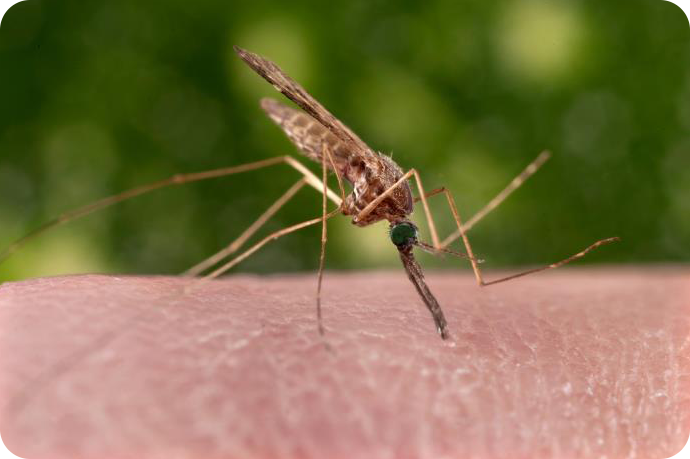Malaria
 Malaria is a common and life-threatening disease found in many tropical and subtropical areas where UN personnel travel to or reside in. It is caused by the Plasmodium parasite and is spread by the night-time – dusk to dawn – biting female Anopheles mosquito. People with malaria often experience fever, chills, and flu-like illness. Left untreated, they may develop severe complications and die.
Malaria is a common and life-threatening disease found in many tropical and subtropical areas where UN personnel travel to or reside in. It is caused by the Plasmodium parasite and is spread by the night-time – dusk to dawn – biting female Anopheles mosquito. People with malaria often experience fever, chills, and flu-like illness. Left untreated, they may develop severe complications and die.
Of the five species of human malaria parasites, Plasmodium falciparum is the most dangerous. The other types of malaria are caused by Plasmodium vivax, Plasmodium ovale, Plasmodium malariae, and Plasmodium knowlesi.
Risk
UN personnel travelling to malaria endemic areas in Africa, South America, and Asia are at high risk. Persons originally exposed to malaria in endemic areas who go back to their home country to visit friends and relatives are also at risk due to waning immunity. Although partial immunity is developed during years of exposure to parasites, no one becomes fully immune to malaria.
Symptoms
Malaria infections are characterized by fever, headache, muscle ache, chills, fatigue, and vomiting symptoms appearing 3-7 days, weeks, or up to several months after being bitten by an infected mosquito. In cases with P. vivax and P. ovale, relapses may occur weeks or months after being infected. P. falciparum symptoms are more severe and include behavioural changes, confusion, seizures, anemia, respiratory failure, kidney failure, coma and shock. If not treated immediately, P. falciparum malaria can lead to death. Treatment includes artemisinin-combination therapy (ACT) and supportive care of symptoms.
Prevention
There are a number of options that travellers can take to prevent malaria, including antimalarial medication, using anti-mosquito sprays or lotions, and sleeping under a permethrin-treated bed net. For complete protection guidelines, medication contraindications and alternatives, please click here. For more information on risk areas around the world, click here.
Recommendations for UN Personnel
All UN personnel travelling to malaria-risk areas should ensure to take the necessary precautions to protect yourself against mosquito bites as outlined here and consult with your doctor in advance of your travel regarding the appropriate antimalaria medication to take.
Brief DHMOSH guidelines for UN Medical Staff (English / French) concerning the diagnosis, treatement and prevention of malaria among UN personnel is also available.
